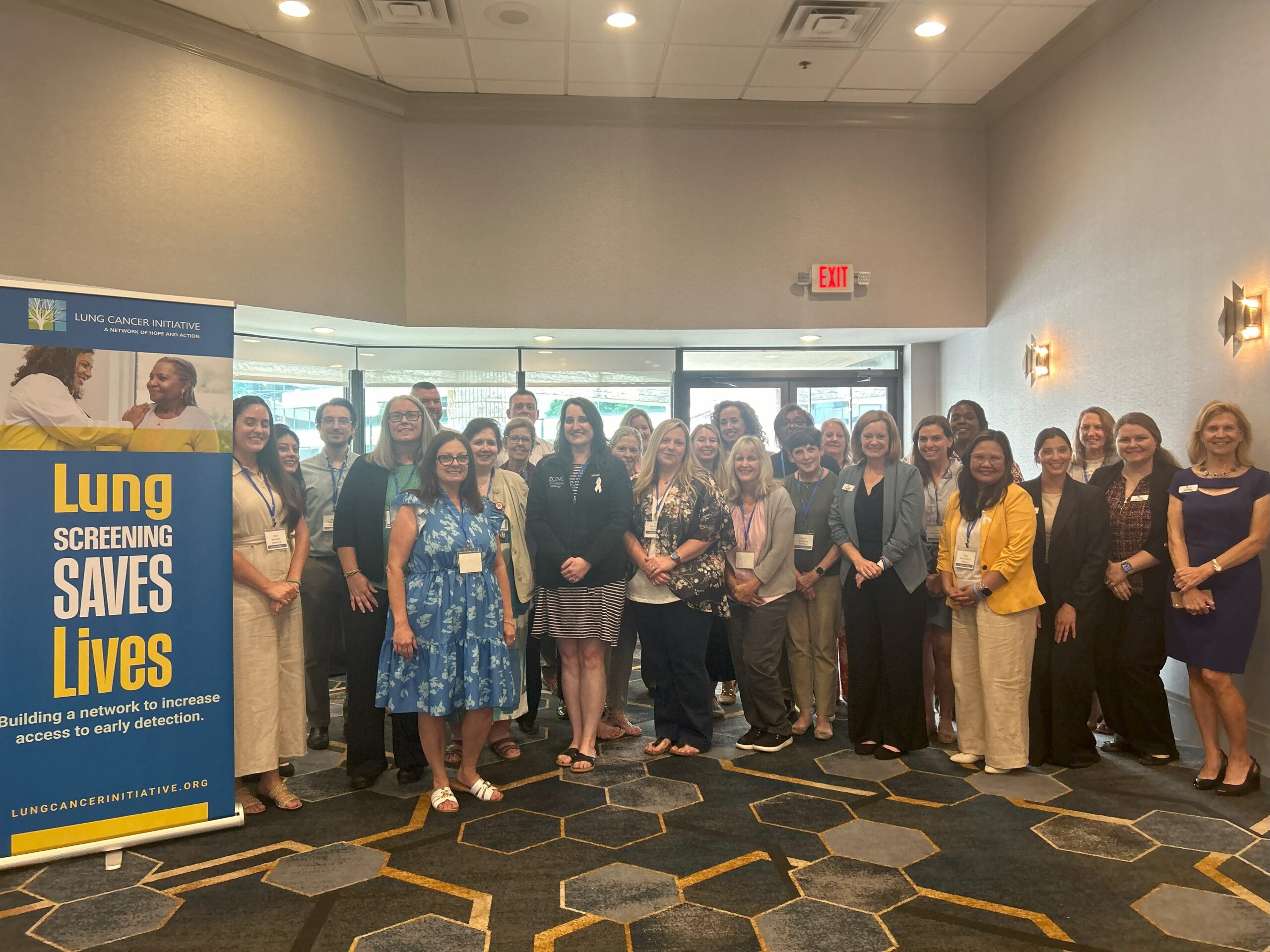Why Navigators Make All the Difference In Screening

Why Navigators Make All the Difference In Screening
Author: Hannah Horowitz, LCI Screening Saves Project Manager
When it comes to saving lives through lung cancer screening, the technology is important, but it’s the human connection that provides the impact. That’s where screening navigators come in.
Lung cancer screening can be complex. It involves understanding eligibility, scheduling a low-dose CT scan, interpreting results, and often connecting patients with follow-up care. Without help, it’s easy for people- especially those in rural or underserved areas- to fall through the cracks.
Who are navigators?
Navigators are healthcare professionals (often nurses, community health workers, or other trained healthcare professionals) who help patients move through the lung cancer screening process step-by-step. They bridge the gap between medical systems, all the medical jargon, and patients.
Why are navigators so critical?
The healthcare system is hard to navigate, even for the most health-literate patients. Now imagine adding in confusing eligibility requirements, insurance coverage questions, stigma from past smoking, anxiety around a potential diagnosis, and technological barriers.
These trained professionals guide individuals through the entire screening journey- from that first conversation about risk factors to making sure they return for annual scans. They’re often the ones helping patients understand their results, access smoking cessation resources, and overcome logistical barriers like transportation, insurance, or fear of results.
In many cases, navigators are also trusted voices in their communities. They build relationships, answer questions, and provide compassionate support.
If you’re a healthcare provider
If you’re a clinician, partnering with a navigator can ease your workload and enhance patient outcomes. They serve as your screening support team- handling logistics, providing education, and focusing on follow-through.
Ask your health system if you have a lung screening navigator. If not, reach out to community programs or your local public health agency. Collaborating can transform your screening efforts.
How you can support this work
It’s not just patients or clinicians who can make a difference- everyone has a role to play in supporting lung cancer screening and navigator programs.
Public health professionals can share best practices, refer to community resources, and advocate for navigation in grant programs.
Healthcare systems can invest in dedicated navigator roles, improve referral systems, and create equitable access across service areas.
Funders and policymakers can support navigator salaries, patient assistance programs, transportation resources, and the infrastructure needed to keep people from falling through the cracks.
Community partners like churches, senior centers, or housing organizations can help raise awareness and connect their communities with local screening programs.
Individuals can spread the word, especially to loved ones over 50 with a history of smoking, who may be eligible for a free or low-cost scan.
Support isn’t always financial- it’s about showing up, staying informed, and becoming a link in the chain that brings lifesaving care closer to those who need it most.
How LCI is helping support screening efforts
Our goal with Screening Saves is to build and support a strong, connected network of lung cancer screening navigators across the state. This June, we took a major step forward. We hosted our first in-person Navigator Meeting at the Sheraton Imperial in Raleigh, welcoming over 40 navigators, nurses, program coordinators, and healthcare professionals for a powerful day of learning and collaboration.
The meeting opened with remarks from LCI leadership and board members, followed by a compelling overview of the current state of lung cancer care and research. A highlight of the day was our interactive case study workshop, where participants worked through real-world challenges in navigation and shared practical solutions from their own systems.
Attendees also heard about navigating incidental pulmonary nodules, and engaged in a thoughtful session on smoking cessation and how to approach sensitive conversations about LDCT screening. A dedicated lunch and networking hour allowed attendees to connect, share workflows and tools, and build new collaborations. We closed the day with “Research to Practice” spotlights, and participants expressed their gratitude for sharing this space to connect and learn.
Our goal is to keep growing this space where navigators learn from one another, lift each other up, and create stronger systems across North Carolina. Since the network formed in March 2024, over 150+ navigators from across the state have joined.
“Thank you for the opportunity to talk with so many of our colleagues across the state. Thank you for all your time and effort in organizing this and spearheading ways that we can all continue to make a difference.”
If you’re interested in joining this growing community, we invite you to register for upcoming meetings at lungcancerinitiative.org under events or reach out directly to hhorowitz@lungcancerinitiative.org to get connected.
